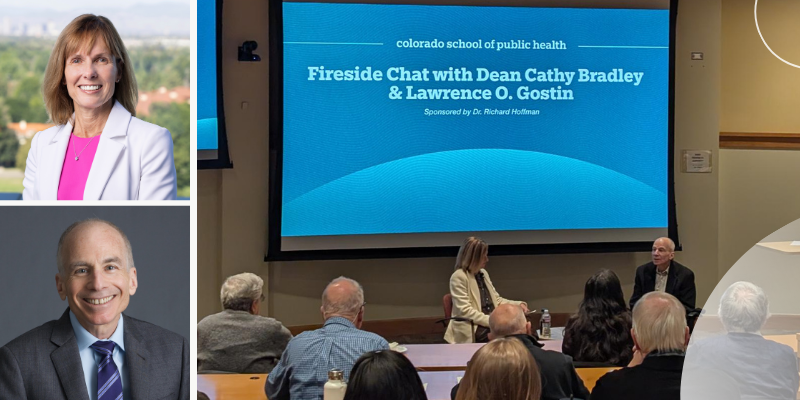In order to ensure our students’ practicums are the most relevant real-world experiences as part of their MPH program, Katie Dickinson, PhD MS, associate professor, and Beth Carlton, in her first year as Chair of the Environmental and Occupational Health (EOH) Department, have created a new model at ColoradoSPH. The result is that students get paid, receive hands-on experience, and local organizations get much needed support.
“We want our students to have experiences with smaller organizations that are doing really good work all over the state.”
The two organizations that are part of the Environmental and Occupational Health for All pilot program are Cultivando, a Latina-run organization that studies air pollution health impacts of the Suncor oil refinery and the Gilpin County Department of Public Health, which supports onsite wastewater treatment systems in the community. MPH students Rachel Culli and Jessica Ayala, were selected to work with these organizations through a competitive process, and the EOH department is providing funding so the students will be paid for their work.
Showcasing the importance of public health education to a community’s overall public health, Gilpin County reached out to the school, hoping to find support. They needed to get background work to develop research, and solutions, around a common problem – septic systems have a limited life span, and, once they fail, can cost up to $100,000 to replace. The solution could provide loans or grants to help residents replace those systems.
“Both for our students benefits and the benefit of these small organizations…we want our students to do work in a place that is really rewarding and give them a lot of hands-on, community-focused work,” Dickinson said.
For the organizations, it can be just as meaningful.
“Working with Dr. Katie Dickinson and the Colorado School of Public Health has been a very meaningful experience. This is especially meaningful for me given that I am an alumna of the school myself. It is rare to have academic partners who show up with humility and deep understanding of community needs, and that’s made our collaboration feel like a real partnership,” said Guadalupe Solís, Director of Environmental Justice Programs at Cultivando. “I’m grateful and hopeful about what this summer practicum pilot will offer—not just for the brilliant students, who deserve to be paid for community-based work, but for us too. There’s so much potential in building stronger, more reciprocal relationships between the school and community organizations like Cultivando, and I am proud of the school for piloting a program that does just this.”
If the pilot program is successful, they hope to find additional funding and additional partners to be able to continue and expand these opportunities.
For Rachel Culli, the summer project will be a continuation of her spring policy project with Gilpin County.
"I was interested in staying on with Alisa Witt/Gilpin County for the summer because I am very interested in learning more about the intersection of public health and policy, and I am passionate about environmental policy," she said. "I am looking forward to learning more about the experiences working in a rural health department and gaining experience with interprofessional teams on local and state levels, and the 'behind the scenes' work of policy creation."






